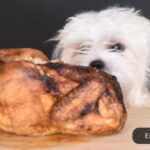Why Does My Dog Keep Licking The Air At Night
Does your dog sometimes seem to be licking the air for no apparent reason, especially at night? While this behavior may look funny or even cute, it could also indicate some underlying health or behavioral issues that you should address as a responsible pet owner. In this long guide, we will explore the reasons why dogs lick the air at night, what you can do about it, and how to prevent it from becoming a persistent problem.
Subtitles:
1. What is air licking in dogs?
2. Why do dogs lick the air at night?
3. Health problems that may cause air licking in dogs
4. Behavioral issues that may cause air licking in dogs
5. How to stop your dog from licking the air at night
6. When to seek professional help for your dog’s air licking
What is Air Licking in Dogs?
Air licking is a term used to describe the behavior of dogs who open their mouths and start moving their tongues as if they were licking something invisible in front of them. This behavior can occur anytime, but it seems more common during certain situations, such as when dogs are relaxed, nervous, excited, or bored. Some people call this behavior “licking ghosts,” “fly biting,” or “vacuuming.”
While occasional air licking may not be a big deal, especially if your dog shows no other signs of discomfort or distress, constant or excessive air licking could signal an underlying issue that needs attention. Therefore, it’s important to pay attention to your dog’s overall body language and behavior and consult with a veterinarian if you notice any significant changes.
Why Do Dogs Lick the Air at Night?
There are several possible reasons why dogs might lick the air at night specifically:
1. Dreaming: Just like humans, dogs can dream while they sleep. During REM (Rapid Eye Movement) sleep, which is the stage where most dreaming occurs, dogs may twitch, whimper, bark, or move their mouths as if they were eating, drinking, or licking something. This is a normal and harmless behavior that reflects the brain’s activity.
2. Dry Mouth: If your dog feels thirsty or has an underlying medical condition that affects their salivary glands or mouth, they may lick the air to moisten their tongue or throat. This could happen more often at night when their body is resting and producing less saliva.
3. Acid Reflux: Dogs who suffer from acid reflux, which occurs when stomach contents flow back into the esophagus, may try to alleviate the discomfort by licking the air or swallowing repeatedly. This can be more likely to happen at night when their stomach is empty or after they have eaten a large meal.
4. Anxiety: Dogs who feel anxious or stressed for various reasons, such as separation anxiety, noise phobia, fear of the dark, or past trauma, may engage in self-soothing behaviors that involve licking themselves or the air. This could occur more often at night when they are alone or in a quiet environment.
5. Compulsive Behavior: Some dogs develop compulsive disorders that make them repeat certain actions over and over again without any apparent reason or reward. Air licking could be one of these repetitive behaviors that dogs develop out of boredom, frustration, or genetic predisposition.
Health Problems That May Cause Air Licking in Dogs
In addition to the above reasons why dogs might lick the air at night, there are also some health problems that could trigger this behavior:
1. Dental Issues: Dogs who have dental problems, such as tooth decay, gum disease, oral tumors, or foreign objects stuck in their mouth, may lick the air as a way of coping with pain or discomfort.
2. Neurological Disorders: Dogs who suffer from neurological conditions that affect their brain function and perception may show abnormal behaviors such as air licking. Examples include epilepsy, brain tumors, or cognitive dysfunction.
3. Medication Side Effects: Some medications that dogs take for various conditions, such as anxiety, depression, or seizures, may cause side effects that include air licking. If your dog has started this behavior after starting a new medication, talk to your veterinarian about the possible causes and alternatives.
Behavioral Issues That May Cause Air Licking in Dogs
Aside from medical issues, there are also some behavioral factors that could contribute to air licking in dogs:
1. Lack of Stimulation: Dogs who don’t have enough mental or physical stimulation during the day may resort to self-stimulatory behaviors such as air licking at night when they are bored or restless.
2. Separation Anxiety: Dogs who suffer from separation anxiety, which is a common condition where dogs become distressed when left alone or separated from their owners, may engage in various destructive or compulsive behaviors including air licking.
3. Fear or Trauma: Dogs who have been exposed to traumatic events such as abuse, neglect, or accidents may develop fear-based behaviors such as air licking as a way of coping with their anxiety or PTSD symptoms.
How to Stop Your Dog From Licking the Air at Night
If your dog only licks the air occasionally and shows no signs of distress or health issues, you may not need to do anything about it other than observing them and providing them with enough water and attention during the day. However, if your dog’s air licking becomes persistent or disruptive, here are some tips to help you manage it:
1. Rule Out Medical Causes: Before assuming that your dog’s air licking is purely behavioral, make sure to have them checked by a veterinarian to rule out any underlying health problems that might require treatment.
2. Address Behavioral Issues: If your dog’s air licking seems related to anxiety, stress, boredom, or lack of exercise, try to address these issues by providing them with more mental and physical stimulation, creating a safe and comfortable sleeping environment, practicing positive reinforcement training, or seeking professional help from a certified dog trainer or behaviorist.
3. Provide Distractions: If your dog seems to lick the air out of habit or boredom, try to provide them with some distractions that can keep them occupied at night, such as puzzle toys, interactive games, or calming music.
4. Use Positive Reinforcement: Whenever your dog shows a desirable behavior instead of air licking, such as drinking water or lying down calmly, praise and reward them with treats or affection to reinforce this behavior.
When to Seek Professional Help for Your Dog’s Air Licking
If your dog’s air licking persists despite your efforts to manage it or if it seems to be linked to serious health or behavioral issues that require specialized attention, don’t hesitate to seek professional help from a qualified veterinarian or animal behaviorist. These experts can diagnose the underlying causes of your dog’s air licking and recommend personalized treatment plans that can improve their quality of life and prevent further complications.
Conclusion
Air licking in dogs can be a normal and harmless behavior, but it can also indicate some underlying health or behavioral issues that need attention. By understanding the possible reasons why dogs lick the air at night and how to address them effectively, you can help your furry friend feel more comfortable and healthy during their sleep time. Remember to consult with a veterinarian if you have any concerns about your dog’s behavior or health and always treat them with kindness and patience.



